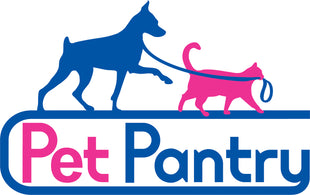Rotation feeding / Rotational Diet
Rotation feeding is a hot topic amongst pet food ‘foodies’. What is rotation feeding?
The concept revolves around changing your pet’s diet regularly. It’s all about variety. We humans don’t like to eat the same thing every day, and many pet parents believe their pets don’t care to either. Variety can be offered by feeding different recipes, or even offering different types of food like dry, canned or freeze-dried. Food rotation can occur on a monthly or weekly basis.
Most high quality pet foods are designed to be complete and balanced to provide all of the nutrition your pet needs. Each ingredient has a unique nutritional profile and will provide various quantities of nutrients such as amino acids, vitamins, minerals, and fatty acids. Some people believe that feeding foods with different nutritional makeup will give your pet a more rounded diet. In addition, feeding a wet food in rotation can help with hydration.
If your pet has a sensitive tummy and is prone to digestive upset, rotation feeding might not be for you. Sudden changes in diet can sometimes cause gastrointestinal problems. If you do decide to try rotation feeding, a gradual change from one diet to the next is always recommended. Rotating foods that have a similar ‘base’ recipe, but only features different meat proteins may be a little less stressful on your pet’s digestive system.
One thing to be aware of with rotational feeding is that if you have been feeding your pet a wide variety of foods and he develops a reaction to any of them, you may not be able to find out what caused the intolerance. This will make it more difficult to find a diet with ‘novel’ ingredients in order to provide relief from food sensitivity.
If you decide that you would like to rotation feed your pet, please consult with your veterinarian first. He or she may be able to offer some advice on the best direction to go and how to start.
Rotation feeding isn’t for every pet as many pet parents who subscribe to the old adage, “If it ain’t broke, don’t fix it,’ can attest. Many geriatric pets fed the same recipes for most of their lives are living proof that rotation is not necessary. At the end of the day, it’s a personal choice for you, your pet and your veterinarian to make.
BY: VAL CULPIN

